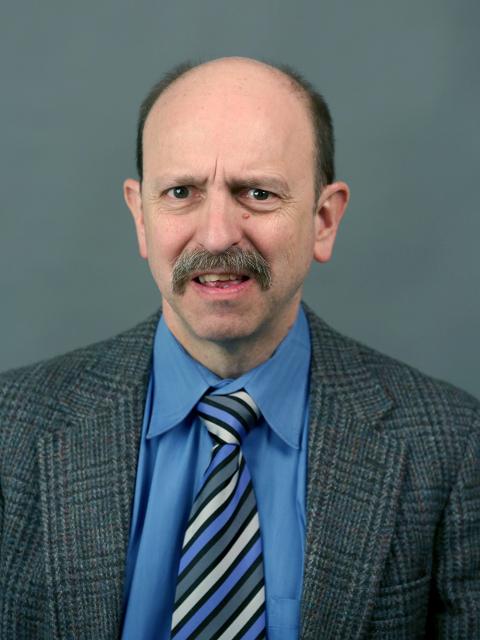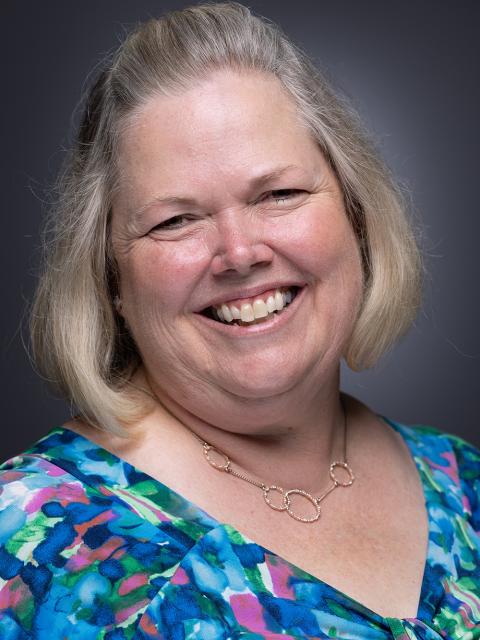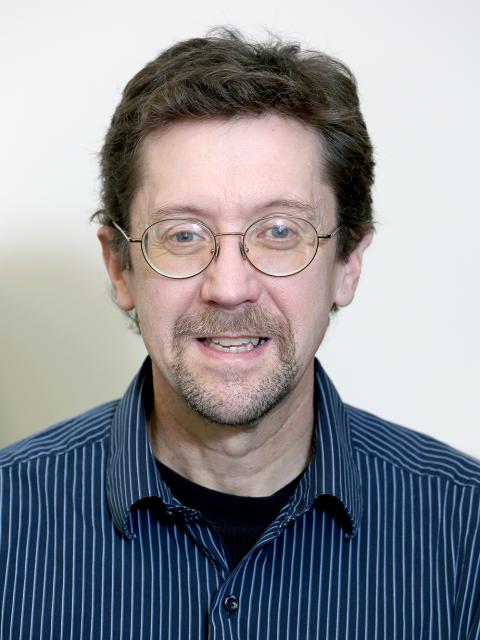The rights of student social media expression and free speech versus hate speech are two of the topics that will be addressed during Free Speech Week hosted by University of Wisconsin-Stout’s Menard Center for the Study of Institutions and Innovation.
Free Speech Week events are being held Monday, Oct. 18, through Wednesday, Oct. 20.
“MSCII promotes the study and discussion of civil rights and free speech, as well as the other First Amendment freedoms that are central to that mission,” said MSCII Director Tim Shiell. “Every year MSCII supports numerous events and activities during Free Speech Week to help educate people about important and timely issues involving our expressive rights.”
Free Speech and the Labor Movement will be discussed from 4:30 to 5:30 p.m. on Monday, Oct. 18, in the Memorial Student Center Cedar and Maple rooms. The featured speaker is Jon Shelton, associate professor of history at UW-Green Bay and the chair of democracy and justice studies. Robert Zeidel, UW-Stout professor of history and interim dean of the College of Arts, Communication, Humanities and Social Sciences, and Shiell will respond to Shelton’s remarks.

Zeidel tackled the issues of the American Industrial Era in his 306-page 2020 book “Robber Barons and Wretched Refuse: Ethnic and Class Dynamics During the Era of American Industrialization.”
Shelton is the author of “Teacher Strike! Public Education and the Making of a New American Political Order,” and the forthcoming book “The Rise and Fall of the Human Capital Myth.”
“Modern free speech is largely the product of three 20th century movements – labor, civil rights and to protect religious minorities,” Shiell said. “We haven’t had an event on the relationship between labor and free speech before. The right to free speech, free assembly and freedom of association remain central to labor’s ability to advance its interests.”
Should Universities Punish Student Social Media Expression? is the topic from 4:30 to 5:30 p.m. on Tuesday, Oct. 19, in the Cedar and Maple rooms. Featured panelists include Adam Kissel, Senior Fellow of the Cardinal Institute for West Virginia Policy, a think tank; Howard Schweber, UW-Madison political science professor; and UW-Stout’s Dean of Students Sandi Scott.

“The student social media landscape has been a mess with different federal circuits reaching different conclusions about student rights,” Shiell said. “The Mahanoy School District v. B.L. decision from the U.S. Supreme Court this summer helps clear things up a bit. Mahanoy basically held student social media expression away from school cannot be punished unless it reaches the level of a true threat, defamation, a material and substantial disruption of school activity, incitement to imminent lawlessness and so forth. Although the case involved a high school student, everyone expects it applies to higher education as well, especially since students in higher ed are legal adults.”
On Wednesday, Oct. 20, from 4:30 to 5:30 p.m. Hate Speech vs. Free Speech will be the topic of a hybrid event in room 205 Sorensen Hall and on Teams. The event is co-sponsored by the Equity, Diversity and Inclusion Office and the Center for Applied Ethics.
Featured speakers are UW-La Crosse political science Professor Timothy Dale and Jane Kirtley, Silha professor of media ethics and law at the Minneapolis-based Silha Center for the Study of Media Ethics and Law.
There is no legal category of “hate speech” in the United States, Shiell said. “What we typically call ‘hate speech’ can be punished by a university only if it reaches the level of a true threat, defamation, a material and substantial disruption to university activity, incitement to imminent lawlessness and so forth,” he said. “Rarely will a racist tweet reach that level.”

Last year during Free Speech Week, the MSCII sponsored a discussion on the pros and cons of regulating hate speech. It is available to view at https://vimeo.com/470299154.
“Too often restrictions on expression are unfairly enforced because they are overbroad and unduly vague, have chilling effects on legitimate expression and are used by those in power to maintain their power,” Shiell said.
In a related event sponsored by MSCII, three School of Art and Design students will be presenting research from 6 to 7 p.m. on Wednesday, Oct. 20, in room 290 of Micheels Hall on whether Confederate monuments should be taken down or left in place. Stephanie Howell, a senior industrial design major from Roberts, will present the perspective of keeping the monuments on view. Nathan Gosswiller, a sophomore game design and development major from Cokato, Minn., will take the position advocating for the removal. Jon Rosario, a sophomore industrial design major from Ijamsville, Md., will moderate.


